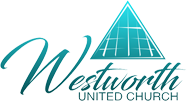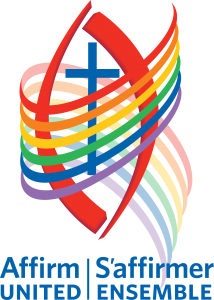I was so proud of myself. I had my sermon done early for this Sunday and was working on other things, when I took a moment to read it over and realize that I absolutely did not say what I wanted to say, especially on this day of celebration and gratitude. So I started over. I spent some time thinking about family and families and what it means to be family. Research… I needed to do some digging to find something more than the Merriam Webster Dictionary definition of “family”. When in doubt, google! So off to Wikipedia I went and here’s what I found….
In a human context, a family is a group of people affiliated by consanguinity, affinity, or co-residence. In most societies it is the principal institution for the socialization of children. Anthropologists most generally classify family organization as matrilocal (a mother and her children); conjugal (a husband, his wife and children; also called nuclear family); and consanguineal (also called an extended family) in which parents and children co-reside with other members of one parent’s family.
You completely understood that, right? Shall I unpack it a bit? Essentially, family is a bunch of people who are related by blood, by like mindedness, or by living in the same place. It goes on to say that the main point of a family is to raise children in one of three situations: mom and kids; mom, dad and kids; and mom, dad, kids and extended family. Are these really the definitive, absolute, only definitions of family, especially given the world as it is right now? Is that all there is to being a family – some folks who got together to raise some kids? I suppose in the most traditional and likely historical sense, yes – I would absolutely take the risk and say that up until about twenty five or thirty years ago, the family was supposed to be a mom, dad, and 2.4 kids. But this traditional view doesn’t cut it any more. And even though David and I fulfill the “traditional nuclear family” definition (we counted Sparky as our .4 child when she was with us), I know that this is not the only possible or right configuration that carries value. I am deeply grateful for that. God has blessed us with a variety of life and ways of living, why would we narrow our view of what constitutes a family?
In this day and age, the word Family encompasses something far more diverse and creative than it had in times past: moms and dads; divorced parent with primary custody; foster families; blended families; common law couples; same sex couples; couples without children; same sex couples with adopted or biological children; grandparents raising children; a teenager of alcoholic parents who care for the rest of the children; adult children looking after aging parents; multigenerational families. All of these are families. And this widens even farther when we take into consideration all the chosen families we have – close friends, support groups, faith communities…. These non-biological family groupings provide the same things that our biological families do – they offer us support and nurture, they give us the opportunity to truly look at who we are and discern the path we should be walking in life.
Given that it’s Christian family Sunday, a day when we recognize and celebrate our families of faith in all their diversity, it makes sense to look at some of the families we see in our scripture:
Abraham and Sarah – late in life parents (Sarah was 90) who are part of a huge extended family – 318 men alone – start adding women and children and on loses count.
Rahab was the matriarch of her family which was made up of her father, mother, brothers, servants and others.
Mary, Martha and Lazarus made up a household of siblings.
Timothy lived with his mother Eunice and grandmother Lois.
Elizabeth and Zachariah were a single child family.
Mary, mother of Jesus, was a teenage mother.
So the traditional definition of family doesn’t really apply to the scriptures either. Did you know that we never hear Jesus describe what we think of as the ideal family? There weren’t families like that in his day. More familiar to Jesus would have been the idea of “It takes a village to raise a child.” In Jesus’ time, one quarter of pregnant women died in childbirth, and fully a third of the children born died for a variety of reasons. Father’s died before seeing their children fully grown. Jesus knew, just as many others knew at the time, that a nuclear family wasn’t enough. So Jesus cultivated community where the ties of faith and baptism were as strong as the ties of blood relations. This way all people within the community found the support, nurture, and encouragement they needed in order to develop strong and compassionate mindsets. It also allowed all people, regardless of connection to family, to find that there were other people, young and old, single and married, empty nesters or new parents etc who were willing and eager to find chosen family. Community such as this enhances life – your own and those in the community.
Even the United Church has opinions on families. The church says “a strong healthy family is not to be without struggles and challenges. Family strength is not about the absence of problems but about the families ability to endure and adapt to troubles and rebound from crises with ongoing commitment to one another and the ability to meet one another’s needs.” Keeping this definition in mind, and thinking about our own families, both biological and chosen, I want you to take a moment to think about the things that define your family. What words would you use to describe them…. Just shout them out…
These words define family for us. They define how we function as our own families and as a church family. This is what we celebrate today – how our families, regardless of make up, influence us. How they shape us. Now with this I very much do recognize the fact that not all our familial relationships are healthy or thriving, and that is when our chosen communities become that important family like relationship. When family hurts, abuses, abandons we turn to the world around us to seek the things we need and we gather those people around us to create a new family order, where we find the support and love we yearn. God is present in all of these things. The Holy parent, caregiver, elder who loves us unconditionally and urges us to find the connections that we need. God gives us the wisdom as to when we need to weather the storms and when to celebrate the joy. Here are Westworth, we are bound one to another through faith, and in dedication to the call to embody Jesus’ ministry – a ministry of radical welcome that creates a community based in diversity – a faith family that takes all shapes, configurations and numbers. Within that we find ways to support and encourage each other as God’s people. This is what we celebrate today.
Let us give thanks for the diversity of connection that surrounds us, reflecting to us the depth and breadth of God’s love in the world.
Amen.


